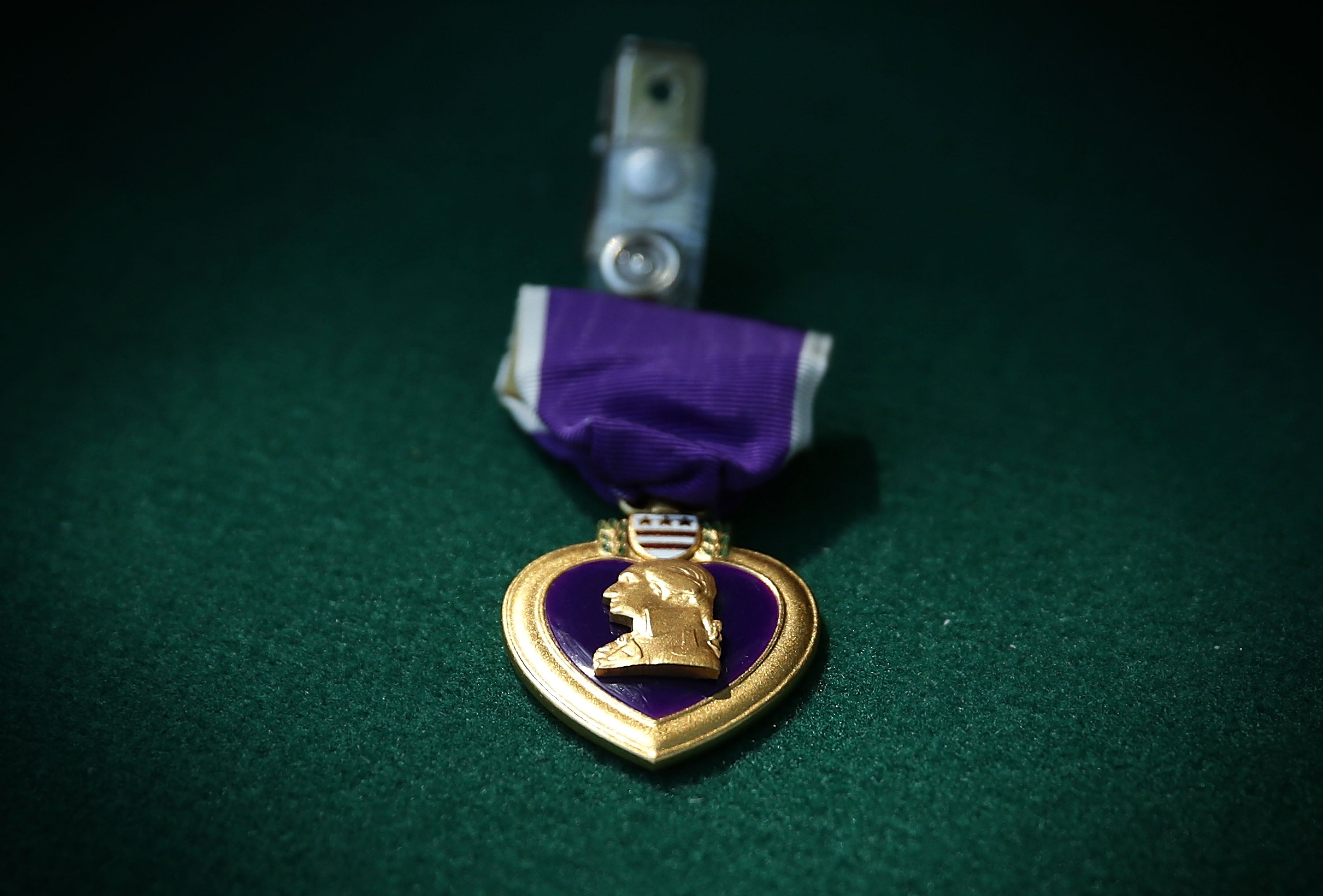Army considers Purple Hearts for troops injured in Iranian attack downplayed by Trump
Many of the soldiers who were at the air base in Iraq when it was hit by Iranian ballistic missiles now suffer from PTSD

Your support helps us to tell the story
From reproductive rights to climate change to Big Tech, The Independent is on the ground when the story is developing. Whether it's investigating the financials of Elon Musk's pro-Trump PAC or producing our latest documentary, 'The A Word', which shines a light on the American women fighting for reproductive rights, we know how important it is to parse out the facts from the messaging.
At such a critical moment in US history, we need reporters on the ground. Your donation allows us to keep sending journalists to speak to both sides of the story.
The Independent is trusted by Americans across the entire political spectrum. And unlike many other quality news outlets, we choose not to lock Americans out of our reporting and analysis with paywalls. We believe quality journalism should be available to everyone, paid for by those who can afford it.
Your support makes all the difference.The army is evaluating whether dozens of additional US troops merit recognition for brain injuries suffered in an Iranian ballistic missile strike in Iraq nearly two years ago, defense officials said Thursday, a move underscoring that one of the most significant foreign policy crises of Donald Trump’s presidency was more severe than he and other US officials acknowledged at the time.
At least 33 service members involved in the 8 January 2020, attack on Ain al-Asad air base are under consideration for Purple Hearts, a distinction reserved for those wounded in combat, a defense official said, speaking on the condition of anonymity because of the issue’s sensitivity. If approved, the personnel will join at least 30 other troops who already received the award for sustaining injuries in the incident.
Geoffrey Hansen, a retired army captain who survived the attack, said that many of the soldiers he supervised have residual ailments and that one person had died by suicide.
“I’ve got lots of soldiers that have really bad PTSD issues, memory issues, bad headaches,” Mr Hansen said, referring in part to post-traumatic stress. “All kinds of lingering effects.”
The attack in western Iraq brought Washington and Tehran to the brink of war. It followed weeks of escalation that included the death of an American in a separate rocket attack in Iraq, an Iranian-backed siege on the US Embassy in Baghdad, and the US drone strike there that killed Qasem Soleimani, a longtime US nemesis and the powerful head of Iran’s Quds Force.
Iran responded to Soleimani’s killing by launching 15 ballistic missiles, 11 of which struck Ain al-Asad. The missiles, each about 40 feet long and carrying a 1,600-pound warhead that left craters up to 30 feet, were the most powerful weapons launched at US troops in a generation.
Mr Trump responded to the lack of American fatalities by declaring on Twitter that “All is well!” A few days later, he said that some of the troops involved had “headaches” but that the situation was “not very serious,” prompting a rebuke from veterans groups.
Initially, the Defense Department reported that eight service members had suffered traumatic brain injuries, but that number increased multiple times in following days. Eventually, at least 110 survivors were diagnosed with a TBI. The Pentagon attributed the rising numbers to symptoms surfacing over time.
The army decided to evaluate whether additional Purple Heart awards were warranted after a commander overseeing troops on the base, Colonel Gregory Fix of the Minnesota National Guard, requested “reconsideration” for 33 nominations that had not been approved.
Colonel Fix wrote in a letter, first reported by CBS News, that he had been instructed “not to inquire about the remaining awards or resubmit those awards” but did so anyway. He could not be reached for comment Thursday.
The Purple Heart, in addition to its cultural significance in recognising those wounded in combat, comes with several benefits from federal and state governments. They include hiring preference for government jobs, upgrades in medical benefits from the Department of Veterans Affairs, tuition waivers and free Purple Heart license plates in many states.
An army spokeswoman, Colonel Cathy Wilkinson, said in a statement Thursday that the service “will evaluate each award nomination, to include posthumous submissions, expeditiously and on their individual merit in accordance with army regulations.”
Colonel Wilkinson did not address Colonel Fix’s assertion that he’d been told not to ask about or resubmit the nominations that were denied.
Survivors of the attack said in interviews with The Washington Post last year that they expected “total devastation” at the base when warned of the kind of missiles that were heading their way. Some prayed before the missiles arrived, and others recorded messages for their families in case they died.
Major Alan Johnson, a National Guard officer who already received a Purple Heart, said that while some troops who endured the attack were in fortified bunkers, others took cover in aboveground shelters with open-air sides that were designed to provide protection from much smaller mortars and rockets.
One of the blasts landed just 60 feet away from him and other soldiers, Mr Johnson recalled. Towering fires erupted after the explosions, forcing soldiers to relocate in between missile volleys.
“I still have anxiety,” Mr Johnson said last year. “I still have recurring nightmares of incoming - just that sound of those things coming in.”
The Washington Post
Join our commenting forum
Join thought-provoking conversations, follow other Independent readers and see their replies
Comments